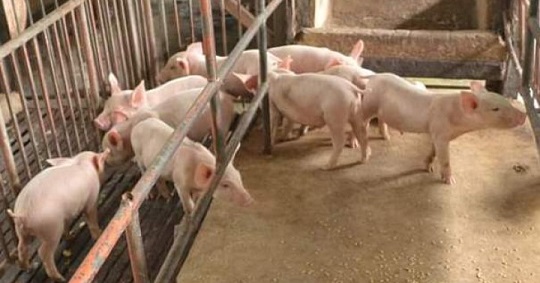Bacolod City – There are now 142 barangays in 17 towns and cities of Negros Occidental affected either by African Swine Fever (ASF) and other hog diseases, according to Gov. Eugenio Jose Lacson.
Total hog mortalities have further risen to 14,404, which is 9.79 percent of the province’s hog population, with losses pegged at P157,658,000, as of June 22, the Provincial Veterinary Office said, in a report submitted to Gov. Lacson.
Local government units with ASF cases include the cities of Bacolod, Silay and Victorias, and the towns of Pulupandan and Hinigaran, in Negros Occidental.
Lacson, however said he noted a steady decline in hog mortalities, which was 400 even before ASF hit some barangays of the province, to as low as 140 in the past several days.
Before the detection of ASF, he said that Negros Occidental sold 5,776 heads of pigs from June 1 to 16, of which 4,332 were shipped to Luzon and 1,454 in the Visayas area.
That is why we have to be very careful in declaring that the whole province has been hit by swine diseases, he added.
If we have declared it already, what will happen to the 5,000 hogs being shipped out from Negros Occidental, Lacson asked.
The governor said they have religiously followed the protocols of the Bureau of Animal Industry on swine diseases. If there is a mortality, we treated it as there is ASF, Lacson stressed.
Due to swine diseases, the live weight per kilo of a pig is now being sold by backyard hog raisers at P100, and P120 for commercial hog raisers.
The Department of Agriculture in Western Visayas admitted that it has no funds to help hog raisers affected by ASF.
Engr. Albert Barrogo, officer-in-charge of DA-WV, said only a few local government units in Negros Occidental has confirmed cases of ASF, and not the whole province.
In the case of hog raisers whose pigs died from hog cholera, Barrogo said no funds are available as financial assistance for them because vaccines are available in the market.
“Hog cholera is considered an endemic disease for hogs in the Philippines,” he pointed out. (Gilbert Bayoran via The Visayan Daily Star (TVDS), photo courtesy of TVDS)

